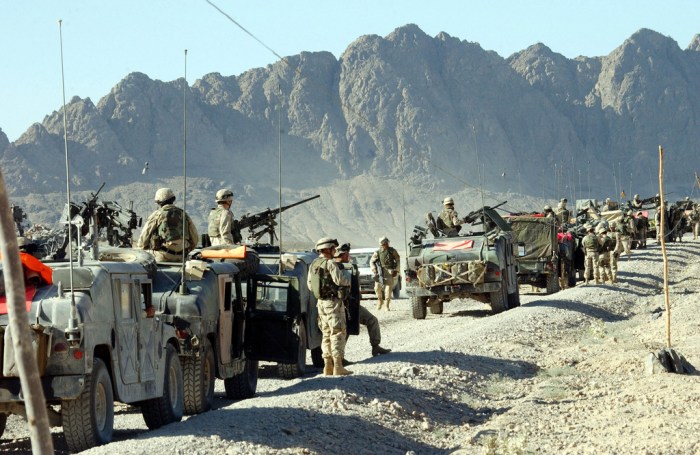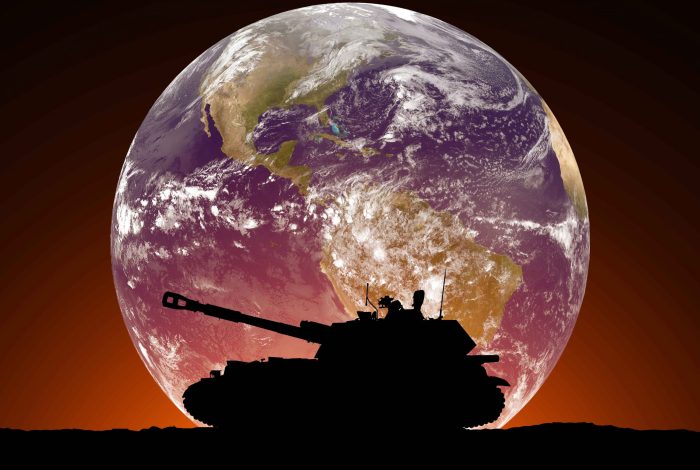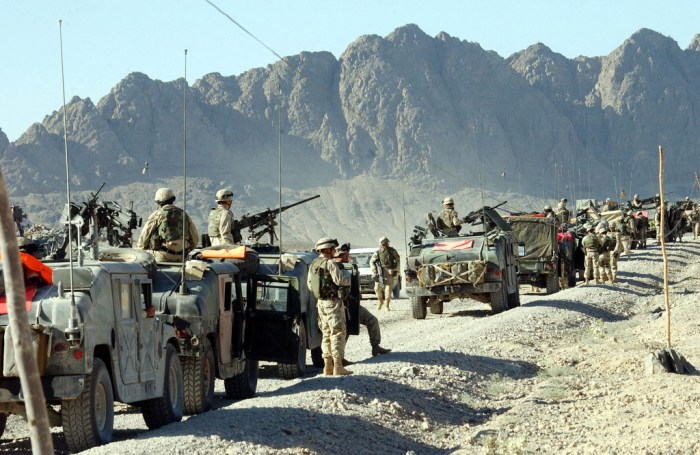
War on Global Values: A Threat to Our Shared Future
War on global values – a phrase that evokes a sense of urgency and alarm. It signifies a dangerous trend where the very foundations of our interconnected world are under attack. From the rise of nationalism and extremism to the erosion of democratic principles, we are witnessing a concerted effort to dismantle the values that have long served as the bedrock of global cooperation and progress.
This essay will delve into the historical context of this conflict, defining the core values at stake, and examining the contemporary challenges that threaten to unravel our shared humanity. We will explore the devastating impacts of a war on global values and discuss strategies for protecting and promoting these values in a rapidly changing world.
Historical Context
The concept of a “war on global values” is not a new phenomenon. Throughout history, conflicts have arisen from clashes between different values and ideologies, shaping the evolution of international norms and principles. From ancient civilizations to modern times, wars have played a significant role in defining the ethical and moral landscape of the world.
Wars Impacting International Norms
Wars have often served as catalysts for the development of international norms and principles. The horrors of past conflicts have spurred the creation of international organizations and agreements aimed at preventing future atrocities. For example, the atrocities of World War II led to the establishment of the United Nations and the adoption of the Universal Declaration of Human Rights, which set forth fundamental rights and freedoms for all individuals.
- The Hague Conventions of 1899 and 1907 established the first international rules for warfare, aiming to limit the brutality of armed conflict.
- The Geneva Conventions, first adopted in 1864, set standards for the humane treatment of prisoners of war and civilians in times of war.
- The Nuremberg Trials, held after World War II, established the principle of individual responsibility for war crimes and crimes against humanity.
Key Events and Figures
Several key events and figures have shaped the concept of a “war on global values.”
- The Cold War, a period of geopolitical tension between the United States and the Soviet Union, saw the clash of two opposing ideologies: capitalism and communism. This ideological conflict manifested in proxy wars and arms races, highlighting the potential for global conflict based on fundamental value differences.
- The rise of terrorism in the late 20th and early 21st centuries has challenged global values of peace, security, and tolerance. The attacks of September 11, 2001, and subsequent conflicts in Afghanistan and Iraq have led to debates about the balance between security and freedom, and the legitimacy of military interventions.
It’s disheartening to see the erosion of global values, replaced by a narrative of division and fear. This insidious trend is amplified by those who profit from conflict, and their efforts to stoke tensions are evident in the this war is a fraud.
Ultimately, we must stand united against these forces, promoting understanding and collaboration to protect the principles that bind us together as a global community.
- The global financial crisis of 2008 exposed deep inequalities and sparked debates about the role of globalization and the responsibilities of nation-states in promoting economic justice and social welfare.
Influence of Ideological Conflicts
Ideological conflicts have played a significant role in shaping the concept of a “war on global values.” The clash of ideologies, such as democracy versus authoritarianism, capitalism versus socialism, or secularism versus religious fundamentalism, has often fueled political and military conflicts.
The war on global values is a dangerous trend, undermining the very foundations of peace and cooperation. We need to remember that development, in all its forms, requires a shared commitment to principles like equality, justice, and sustainability. The United Nations, through its work on development issues , plays a crucial role in promoting these values.
By working together, we can ensure that development benefits all, and that the war on global values is ultimately defeated.
These conflicts have not only impacted the geopolitical landscape but also shaped the way we understand and value different ways of life.
Defining Global Values

In a world increasingly interconnected, the concept of global values takes on immense significance. It seeks to identify the shared principles and ideals that underpin a just and peaceful international community. This section delves into the core values recognized as fundamental to a global society, examining their ethical and philosophical underpinnings, and exploring diverse interpretations across cultures and ideologies.
Core Global Values
Identifying universally recognized global values is a complex endeavor, given the vast diversity of cultures and belief systems. However, several core values emerge as fundamental to a global society. These include:
- Human Rights:The Universal Declaration of Human Rights, adopted by the United Nations in 1948, Artikels fundamental rights inherent to all human beings, regardless of race, sex, nationality, ethnicity, language, religion, or any other status. These rights include the right to life, liberty, and security of person; freedom from torture and degrading treatment; the right to a fair trial; and the right to freedom of expression, association, and assembly.
- Peace and Non-Violence:The pursuit of peace and the rejection of violence are central to a global society. This value emphasizes conflict resolution through dialogue, diplomacy, and international cooperation, promoting peaceful coexistence and understanding between nations and peoples.
- Justice and Fairness:Global values advocate for justice and fairness, both domestically and internationally. This includes ensuring equal access to opportunities, resources, and legal protections, regardless of background or circumstance.
- Sustainability:Recognizing the interconnectedness of human societies and the environment, global values prioritize sustainable development practices that balance economic growth with environmental protection and social equity. This includes addressing climate change, preserving biodiversity, and promoting responsible resource management.
- Tolerance and Respect for Diversity:Global values promote tolerance and respect for diversity, recognizing the richness and value of different cultures, religions, and belief systems. This includes fostering intercultural dialogue and understanding, combating discrimination, and promoting inclusivity.
Ethical and Philosophical Underpinnings
The ethical and philosophical underpinnings of global values are rooted in various traditions, including:
- Humanism:Humanism emphasizes human dignity, reason, and the pursuit of happiness. It advocates for universal human rights and ethical conduct based on shared human values.
- Utilitarianism:Utilitarianism focuses on maximizing happiness and well-being for the greatest number of people. It suggests that actions are morally right if they produce the greatest good for the greatest number.
- Kantian Ethics:Kantian ethics emphasizes the categorical imperative, which dictates that actions should be guided by universal moral principles. It advocates for treating all individuals with respect and dignity, regardless of their differences.
- Communitarianism:Communitarianism stresses the importance of shared values and traditions in shaping individual identity and social cohesion. It emphasizes the role of community in promoting ethical behavior and fostering a sense of belonging.
Interpretations Across Cultures and Ideologies
While the core values discussed above provide a framework for global ethics, their interpretations and applications vary across cultures and ideologies.
- Cultural Relativism:Cultural relativism argues that moral values are relative to specific cultures and that there are no universal moral standards. This perspective suggests that judging other cultures based on one’s own values is inappropriate.
- Universalism:Universalism, on the other hand, asserts the existence of universal moral principles that apply to all people, regardless of their cultural background. This perspective emphasizes the common humanity that unites all individuals and the need for shared values to guide global interactions.
- Ideological Differences:Ideological differences also shape interpretations of global values. For example, liberal democracies tend to prioritize individual rights and freedoms, while authoritarian regimes may emphasize national unity and social order.
Contemporary Challenges to Global Values

The world today faces a multitude of challenges that threaten the very fabric of global values. From political polarization to the rise of extremism, these challenges test the foundations of our shared humanity and the principles that bind us together.
Understanding these challenges is crucial to preserving and promoting global values in an increasingly complex and interconnected world.
Political Ideologies and Global Values, War on global values
Political ideologies, particularly those that promote nationalism, populism, and authoritarianism, can pose significant challenges to global values. These ideologies often prioritize national interests above international cooperation, leading to a decline in multilateralism and a rise in protectionist policies.
- For instance, the rise of nationalist movements in Europe and North America has led to increased skepticism towards immigration and trade, eroding the values of inclusivity and openness that underpin global cooperation.
- Similarly, the rise of authoritarian regimes in countries like Russia and China has led to a decline in human rights and democratic principles, undermining the values of freedom, equality, and justice.
These ideologies often exploit existing societal divisions and anxieties, fostering a climate of fear and distrust that makes it difficult to build consensus around shared values.
Religious Extremism and Global Values
Religious extremism, fueled by interpretations of religious texts that promote violence and intolerance, poses a significant threat to global values. These extremist ideologies often reject the principles of peaceful coexistence and interfaith dialogue, leading to conflict, persecution, and the erosion of human rights.
The war on global values is a complex and multifaceted issue, often manifesting in unexpected ways. One such example is the ongoing tension surrounding north korea and nuclear weapons , which raises concerns about the disregard for international norms and the potential for catastrophic consequences.
This disregard for shared values underscores the need for global cooperation and diplomacy to address these challenges and ensure a more peaceful future.
- For example, the rise of ISIS and other extremist groups in the Middle East has led to widespread violence, displacement, and the destruction of cultural heritage, undermining the values of peace, tolerance, and cultural diversity.
- Similarly, the rise of white supremacy and neo-Nazi movements in the West has led to hate crimes, discrimination, and the erosion of values of equality and human dignity.
These ideologies often seek to impose their narrow interpretations of faith on others, leading to conflict and undermining the values of freedom of religion and belief.
Social Movements and Global Values
Social movements, while often driven by positive intentions, can sometimes challenge global values if they prioritize their own agendas over the broader interests of society.
- For example, some social movements have been accused of promoting identity politics, which can lead to divisions and polarization within society, undermining the values of unity and social cohesion.
- Others have been criticized for using tactics that violate the rights of others, such as violence, intimidation, or censorship, undermining the values of freedom of expression and peaceful assembly.
It is important to distinguish between movements that promote positive social change and those that undermine global values. While all movements have the right to express their views, it is essential that they do so within the framework of respect for human rights and the rule of law.
Impacts of a “War on Global Values”
A decline in global values would have profound and far-reaching consequences, undermining the very foundations of international cooperation and stability. This erosion of shared principles would not only weaken existing institutions but also pave the way for increased conflict, social unrest, and humanitarian crises.
Impact on International Relations and Cooperation
A decline in global values would create a more fractured and adversarial international landscape. The shared norms and principles that underpin international cooperation, such as diplomacy, respect for sovereignty, and peaceful resolution of disputes, would be weakened. This could lead to a rise in unilateralism, protectionism, and a retreat from multilateralism.
The consequences would be felt across various domains, from trade and investment to climate change and global health.
Strategies for Protecting Global Values

In an era marked by increasing interconnectedness and complex challenges, the preservation and promotion of global values are paramount. This requires a multifaceted approach that engages various stakeholders, including international organizations, civil society, and individuals.
The Role of International Organizations
International organizations play a crucial role in fostering a global framework for upholding shared values. They provide platforms for dialogue, cooperation, and the development of international norms and standards. For example, the United Nations (UN) has been instrumental in promoting human rights, peace, and development through its various agencies and initiatives.
The UN’s Universal Declaration of Human Rights, adopted in 1948, serves as a cornerstone for the protection of fundamental human rights worldwide.
- Developing and Enforcing International Law:International organizations can contribute to the development and enforcement of international law that upholds global values. This includes treaties, conventions, and other legal instruments that address issues such as human rights, environmental protection, and international humanitarian law. The International Criminal Court (ICC), for instance, investigates and prosecutes individuals accused of the most serious crimes of concern to the international community, such as genocide, crimes against humanity, and war crimes.
- Monitoring and Reporting on Human Rights:International organizations can monitor and report on the human rights situation in different countries. This includes collecting data, conducting investigations, and issuing reports on human rights violations. Organizations like Amnesty International and Human Rights Watch play a vital role in exposing human rights abuses and advocating for accountability.
- Promoting International Cooperation:International organizations can facilitate international cooperation on issues related to global values. This includes providing technical assistance, capacity building, and coordinating efforts among different countries. The World Health Organization (WHO), for example, has been at the forefront of global efforts to combat pandemics and promote public health.
The Role of Civil Society
Civil society organizations, including non-governmental organizations (NGOs), community groups, and social movements, play a vital role in promoting and protecting global values. They act as watchdogs, advocates, and implementers of values-based initiatives.
- Advocating for Human Rights and Social Justice:Civil society organizations actively advocate for human rights and social justice, challenging governments and corporations that violate these values. They conduct campaigns, organize protests, and engage in public education to raise awareness about human rights abuses and promote social change.
- Providing Services and Support:Many civil society organizations provide essential services and support to vulnerable populations, such as refugees, victims of conflict, and marginalized communities. They offer legal aid, healthcare, education, and other forms of assistance to promote human dignity and well-being.
- Building Coalitions and Networks:Civil society organizations often work together to build coalitions and networks to amplify their voices and influence policy decisions. They collaborate with other organizations, individuals, and governments to address common challenges and promote shared values.
The Role of Individuals
Individuals have a fundamental role to play in upholding global values. Their actions, choices, and voices can contribute to a more just and equitable world.
- Promoting Tolerance and Understanding:Individuals can promote tolerance and understanding by challenging prejudice and discrimination. This includes engaging in respectful dialogue, educating themselves about different cultures, and advocating for diversity and inclusion.
- Supporting Human Rights Defenders:Individuals can support human rights defenders by donating to organizations, participating in campaigns, and raising awareness about their work. They can also advocate for the release of imprisoned human rights defenders and hold governments accountable for their actions.
- Consuming Responsibly:Individuals can make conscious choices about the products they buy and the companies they support. They can choose to support businesses that operate ethically and promote social and environmental responsibility.






